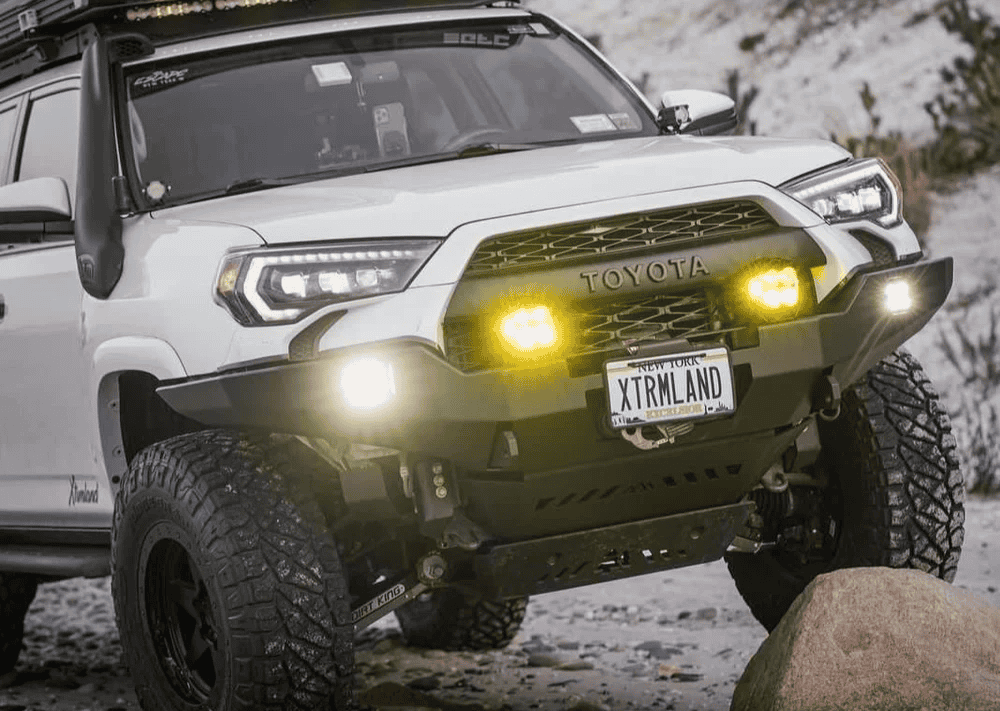Overland Vehicles

Responsible overlanding practices start with a simple idea. Take only what you need, bring everything back, and leave the place better than you found it. Choose previously impacted or durable surfaces for camp like gravel, rock, or established clearings to protect soil and plants. Keep group sizes small and noise low so wildlife can keep natural patterns. Use a camp table and ground mat to prevent scorching and spills from touching the earth.
Waste management is the backbone of low impact travel. Pack out all trash, micro trash, and food scraps. Store gray water in a sealed container and dispose of it at a legal dump or in a municipal system. Human waste should go in a portable toilet or wag bag where required, and catholes should only be used where legal and at proper depth and distance from water. Cooking on a stove is often cleaner and safer than open fire. If fires are allowed, use a fire pan or existing ring, keep it small, burn it to fine ash, and cold extinguish with water.
Tires, throttle, and traction matter. Air down for traction and ride comfort, but avoid spinning tires that scar the trail. Drive at a steady pace to reduce washboarding and rutting. Recover vehicles with soft gear and tree protection, and never anchor to living branches. If a route is too wet or soft, turn around rather than carving new tracks.
Thoughtful planning reduces impact before your first mile. Check seasonal closures and fire restrictions. Study maps for private land, tribal land, wilderness, and habitat zones. Avoid routes after heavy rain when clay soil can become long lasting mud ruts. Time arrivals to reach camp before dark so you can pick a durable site without guessing.
On trail, be predictable and courteous. Yield to uphill traffic. Motorized vehicles yield to non motorized users, and everyone yields to pack animals. Keep speed down near camps or trailheads. Avoid loud generators and run times that disturb others. Spread out in convoy to minimize dust and to keep line of sight without tailgating.
Buy supplies in gateway towns, use approved dump stations, and follow local ordinances on fires, idling, and parking. Keep camps discreet and brief near neighborhoods. Ask permission before accessing private land. A friendly chat at a small store can be the best trip intel you get.
Give animals distance, store food in sealed containers, and never feed wildlife. Skip travel during sensitive times like calving, nesting, or winter range closures. Park and camp at least two hundred feet from water sources when required so animals can drink undisturbed.
A dialed vehicle reduces risk and prevents spills. Inspect fluids, hoses, and lines before every trip and carry absorbent mats and a spill kit. Keep total weight in check with realistic packing so you do not overload brakes or suspension. Choose all terrain tires that match your terrain and set pressures for traction that does not dig. Bring recovery boards, a shovel, and proper rated gear to resolve stuck situations without tearing up soil.
Fuel and fire safety overlap with conservation. Route fuel stops to avoid carrying excess weight, and store extra fuel in rated containers away from heat sources. In dry seasons, skip sparks, use spark arrestors, and cook on a stove. A bucket of water and a small extinguisher should live within arm’s reach at camp.
Wind changes quickly. Build a wind break for stoves and extinguish flames fully before sleep. Police your campsite at departure level, scan for micro trash and embers, and brush out your tire marks if safe to do so. A clean exit is the signature of a responsible traveler.
Responsible travel does not mean joyless travel. It means being deliberate. When you plan routes carefully, choose low impact camps, and maintain your vehicle, the land stays open and your trips run smoother.
If you are moving from weekend trips to bigger routes, a purpose built rig makes responsible travel easier. Thoughtful power systems, secure water storage, and safe recovery gear placement reduce risk and clutter. Explore our Overland rigs to see how efficient layouts and reliable components support clean camps and quiet trail manners. For unique needs like dual battery power, integrated cargo, and smart lighting, our Custom overland upfit page outlines build paths that respect both the trail and your time. Curious how we work and why travelers trust us for remote ready builds. Visit Why choose OZK Customs to understand our approach.
We craft complete custom builds and partial upfits for adventure vans and overland rigs, with handoff support in Northwest Arkansas so you can shake down your system before a long route. Tell us how you travel, where you go, and what you value most about low impact exploration. We will design a solution that keeps you comfortable, organized, and considerate of every place you park.
Ready for an eco minded rig that is reliable and trip proven. Share your goals and terrain, and OZK Customs will design a build that travels light, manages power and water cleanly, and keeps you safer off grid. Tell us what you need and we will map the right custom path.
ADDRESS:
6159 E Huntsville Rd, Fayetteville, AR 72701
PHONE:
(479) 326-9200
EMAIL:
info@ozkvans.com